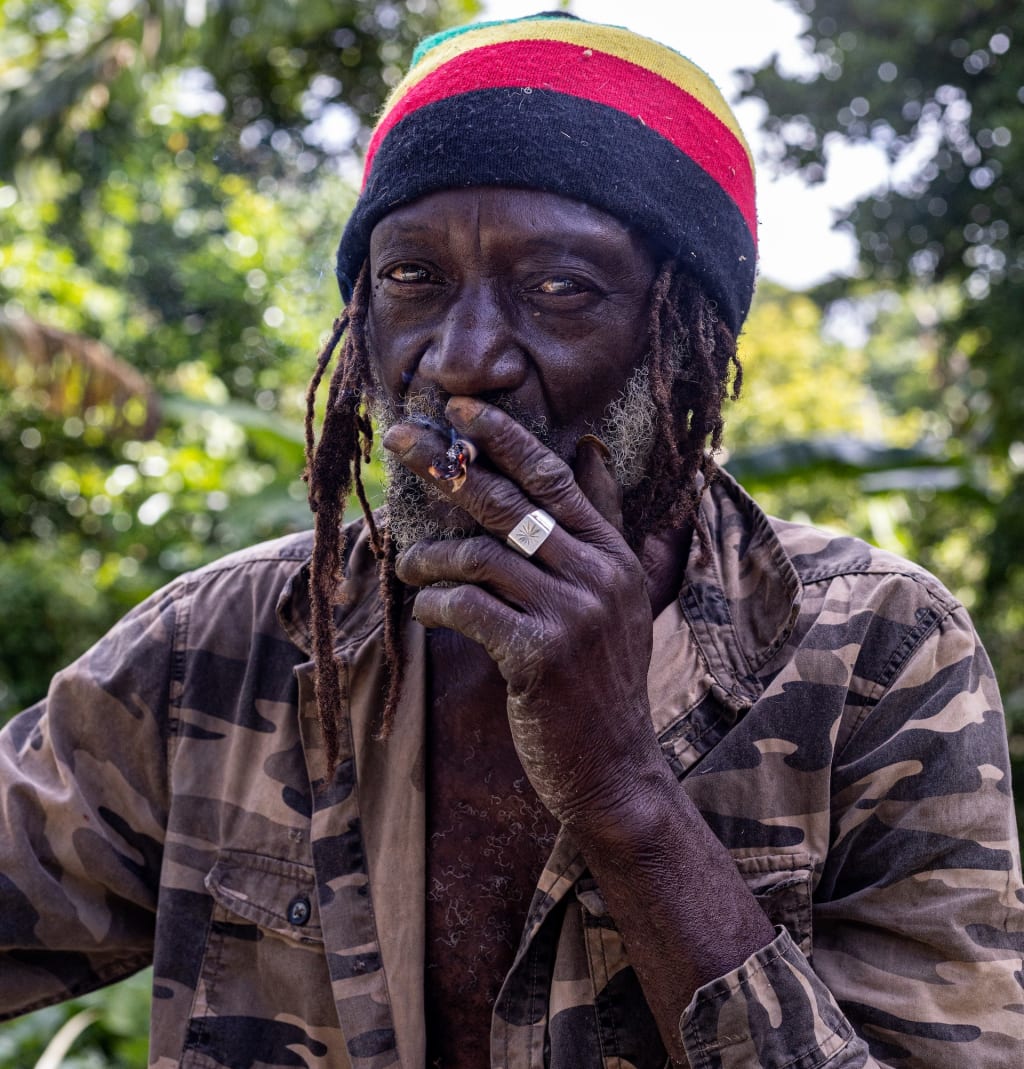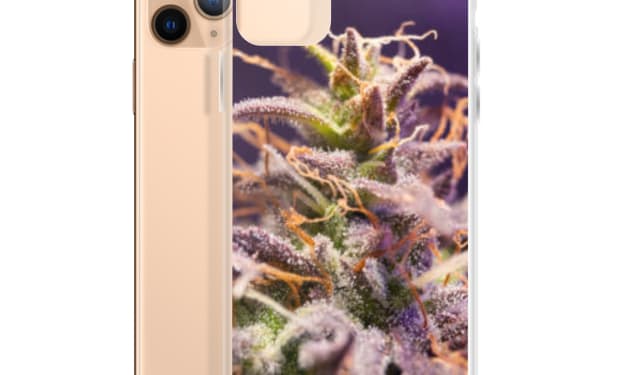
Rastafarianism is a religious and cultural movement that originated in Jamaica in the early 20th century. The movement is deeply rooted in the African diaspora, and its followers believe in the divinity of Emperor Haile Selassie I of Ethiopia, whom they regard as the Messiah. Rastafarianism has a strong connection to cannabis, which is considered a sacrament and a tool for spiritual enlightenment. The use of cannabis is an integral part of Rastafarian rituals and is seen as a way to deepen the connection with Jah (God).
Understanding the relationship between Rastafarianism and cannabis is crucial to appreciating the spiritual significance of the herb in this religion. Unfortunately, there are many misconceptions and stereotypes surrounding the use of cannabis in Rastafarianism, which have led to negative attitudes towards the religion and its followers. In this blog post, we will explore the history of cannabis in Rastafarian spirituality, its religious significance, and address common misconceptions about the use of the herb in this religion. We will also discuss the impact of cannabis legalization on Rastafarianism and the challenges that the religion still faces in accessing and using cannabis legally. By the end of this post, you will have a better understanding of the sacred herb in the context of Rastafarian spirituality.
The History of Cannabis in Rastafarian Spirituality
The use of cannabis has a long history in Rastafarian spirituality and is deeply ingrained in the religion's beliefs and practices. Cannabis, known as "ganja" in Rastafarianism, is believed to be a sacred herb that brings followers closer to Jah (God) and is used in various spiritual rituals.
The historical and cultural significance of cannabis in Rastafarianism dates back to the 18th century, when Africans were brought to Jamaica as slaves. It is believed that the use of cannabis was introduced to Jamaica by Indian indentured laborers who were brought to the island in the 19th century. The Rastafarians, who emerged in Jamaica in the 1930s, were drawn to the use of cannabis as a way to connect with their African heritage and as a means of spiritual enlightenment.
The use of cannabis is tied to Rastafarian beliefs and practices in several ways. Rastafarians believe that the herb is a natural and sacred plant that was created by Jah for human use. The use of cannabis is seen as a way to connect with nature and to achieve a higher state of consciousness. Rastafarians also believe that the herb has healing properties and can be used to treat a variety of ailments.
The role of cannabis in Rastafarian spiritual rituals is significant. Cannabis is used in prayer and meditation as a way to deepen the connection with Jah. Rastafarians often gather in small groups, known as "reasoning sessions," where they smoke cannabis and engage in discussions about spirituality, politics, and culture. Cannabis is also used in the Nyabinghi, a Rastafarian gathering that involves music, dance, and prayer.
The Religious Significance of Cannabis in Rastafarianism
Cannabis is regarded as a sacrament and a tool for spiritual enlightenment in Rastafarianism. Rastafarians believe that cannabis has a religious significance and that its use can bring them closer to Jah (God). The herb is seen as a way to enhance spiritual awareness, promote meditation, and help Rastafarians connect with their inner selves.
In Rastafarianism, cannabis is often referred to as the "wisdom weed" or the "holy herb." The use of cannabis is believed to have been mentioned in the Bible, and Rastafarians interpret several passages in the Bible as references to the herb. For example, in Psalm 104:14, it says, "He causeth the grass to grow for the cattle, and herb for the service of man." Rastafarians interpret this verse as a reference to the use of cannabis for spiritual purposes.
The unique language used by Rastafarians to describe the spiritual experience of cannabis use is called "Iyaric." Iyaric is a dialect of English that incorporates elements of Jamaican patois, African languages, and biblical references. Rastafarians use Iyaric to describe the spiritual and emotional effects of cannabis use, such as "I-and-I" to refer to the unity between the self and God.
Cannabis is used to deepen the connection with Jah in Rastafarianism. Rastafarians believe that the herb can help them to better understand Jah's teachings and to achieve a higher state of consciousness. Cannabis is often used in prayer and meditation as a way to focus the mind and to promote spiritual awareness. The herb is also believed to have healing properties and is used to treat physical and emotional ailments.
Misconceptions About Cannabis in Rastafarianism
There are many misconceptions about the use of cannabis in Rastafarianism, which can lead to misunderstandings and stigmatization of the religion. One common misconception is that Rastafarians use cannabis solely for recreational purposes or to promote drug abuse. However, the use of cannabis in Rastafarianism has a deep spiritual and religious context that is often overlooked.
Firstly, the use of cannabis in Rastafarianism is not about getting high or escaping reality. Instead, it is about achieving a deeper spiritual connection with Jah (God) and promoting healing. Rastafarians believe that the herb has the power to heal both physical and emotional ailments and can be used for medicinal purposes. The herb is also seen as a way to promote unity and togetherness, rather than promoting drug abuse or addiction.
Secondly, it is important to understand that cannabis use in Rastafarianism is not a requirement or a mandatory practice. While many Rastafarians choose to use cannabis as a tool for spiritual enlightenment, it is not a necessary part of the religion. In fact, some Rastafarians may choose not to use cannabis at all.
Finally, it is crucial to appreciate the religious and cultural significance of cannabis use in Rastafarianism. For Rastafarians, the herb is not just a plant, but a sacred and divine gift from Jah. The use of cannabis is a deeply ingrained part of the religion's beliefs and practices and is often used in spiritual rituals and ceremonies.
The Legalization of Cannabis and Rastafarianism
The legalization of cannabis has had a significant impact on Rastafarianism and its use of the herb. For many years, Rastafarians have faced persecution and discrimination for their use of cannabis, which is considered a sacred sacrament in their religion. However, the legalization of cannabis in some countries has given Rastafarians greater freedom to practice their religion and use the herb without fear of legal repercussions.
Rastafarian activism has played a crucial role in advocating for the legalization of cannabis for religious use. Many Rastafarian communities have been actively involved in campaigns to legalize cannabis, arguing that it is a fundamental part of their religion and should be recognized as such. Some countries have responded to this activism by enshrining protections for religious use of cannabis in their laws and policies.
Despite the progress made in some countries, Rastafarians still face significant challenges in accessing and using cannabis legally. In many places, cannabis is still illegal, and Rastafarians may face legal consequences for using the herb. Even in countries where cannabis is legal, regulations around its use can be strict, and Rastafarians may face difficulties obtaining cannabis for religious purposes.
Furthermore, there are still societal stigmas around cannabis use that can affect how Rastafarians are perceived and treated. Some people may still view cannabis use as a negative and harmful practice, and this can lead to discrimination against Rastafarians who use the herb.
Conclusion
Cannabis holds a deep significance in Rastafarianism, and its use is an essential part of their spiritual practice. For Rastafarians, cannabis is not simply a recreational drug but a sacrament that connects them to their God, Jah. Through its use, Rastafarians believe that they can achieve a higher level of consciousness and deepen their spiritual connection.
However, there are many misconceptions about the role of cannabis in Rastafarianism, and it is essential to understand its significance in the context of their religion. It is crucial to recognize that the use of cannabis in Rastafarianism is not about promoting drug abuse or getting high for the sake of it but rather a tool for spiritual enlightenment and connection with Jah.
The legalization of cannabis has brought both opportunities and challenges for Rastafarianism and its use of the herb. While it has given Rastafarians greater freedom to practice their religion, there are still many obstacles to accessing and using cannabis legally. Nonetheless, Rastafarian activism has been instrumental in advocating for religious use of cannabis and fighting against discrimination.
Overall, understanding the relationship between Rastafarianism and cannabis is crucial in recognizing and respecting their spiritual practices. It is essential to challenge misconceptions and work towards greater understanding and recognition of the spiritual significance of cannabis in Rastafarianism.
Final Note
If you’re interested in exploring the Jah Rastafari movement further, we invite you to check out Fifth Degree’s collection of Rastafarian clothing. Our clothing is designed to reflect the spirit and teachings of Rastafarianism, with bold colors, empowering messages, and a commitment to sustainability and ethical production. We believe that what you wear can be a powerful expression of your values and beliefs, and we’re proud to offer a range of high-quality, stylish, and socially conscious clothing for individuals who are seeking to live in harmony with nature and the divine. Visit our website today to learn more about our collection and find the perfect Rastafarian clothes for you.






Comments
There are no comments for this story
Be the first to respond and start the conversation.